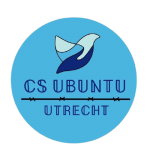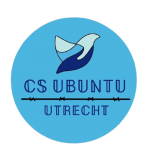Threats in Georgia’s South Osettia
For years, Russia has been trying to regain influence in the surrounding areas. The increase of western-oriented neighbours has always been perceived as a threat in the Kremlin. The current situation in Ukraine is the most aggressive and unexpected expression of this will to influence, up until now.
But in more sly ways, and often out of sight of most people, efforts to expand territory and influence have been going on for years. Georgia is one of such areas where this is happening; to be to explain this situation, some historical background and nuance is required.
The high mountains of the Caucasus form a natural border between Georgia in the south and Russia in the north. For centuries, these boundaries have been sensitive. There are various peoples who do not always feel connected to the central authority. For example, the people from Ossetia. In Soviet times, this area was entirely within the territory of the Soviet Union. That all changed in 1990. The Soviet Union fell apart, and Georgia became an independent country in 1991. The region of Ossetia was divided; North Ossetia now came within Russian territory, and South Ossetia within Georgian territory. South Ossetia started a struggle for independence; they did not wish to be part of the newly formed Georgia.
This struggle was initially tough, but a truce was soon agreed upon, with Russia acting as mediator. Although it was apparently calm after this, practices still occurred that indicated resentment. For example; many South Ossetians received a Russian passport, while the Georgians in this same area did not.
In 2004, the Rose Revolution broke out in Georgia, because of discontent with a corrupt regime. Former Soviet leader Shervardnadze was deposed, and a new president, Saakashvili, came to power. He implemented policies to integrate South Ossetia into the rest of Georgia. He also carried out many reforms and, among other things, expressed the ambition to become a member of both the EU and NATO. When similar tendencies followed in other former Soviet states, the Kremlin experienced this as a dangerous threat. In response, Russia strengthened ties with regions such as South Ossetia; economic and diplomatic aid was promised to these regions.
For a long time, small battles remained the order of the day. The situation escalated in August 2008. Georgian troops entered South Ossetia, they say, to end “continuous shelling”. The Georgian army moreover made attempts to capture South Ossetia’s capital, Tskhinvali. Russian forces responded immediately. A five-day conflict with Russia ensues, in which tanks and warplanes were sent from the Kremlin. Not only expelled the Georgians from South Ossetia but also moved deep into Georgia themselves.
After several months of negotiations, in which, among other parties, NATO had to act as a mediator, Russia finally withdrew. Although a ceasefire was subsequently reached, Russia has recognized South Ossetia’s independence and has also concluded a treaty regulating the mutual cooperation of security services, armies and border guards. The US, NATO and Georgia opposed this treaty.
Although the region is still internationally recognized as part of Georgia, the border has always remained very sensitive. Today, the border is partly marked with barbed wire, but is largely invisible. Every once in a while this border is moved by the Russians; further into South Ossetia, creating more Russian territory. This often happens overnight; one can wake up in the morning in Georgia, go for their daily walk, and suddenly find himself unsuspectingly in Russia. Livestock is also often lost in this way. And even fallen completely inhabited houses have become part of Russian territory because of these practices.
Now that the unpredictability and aggressiveness of the Russian regime in Ukraine has become visible to the whole world, it is possible that regions such as South Ossetia are also at risk.
Our thoughts now are with the people of Ukraine and every innocent person who suffers because of the current events. In addition, we pray that the situation does not escalate any further.
If you want to read more about this, please head to our Resource Bank!



